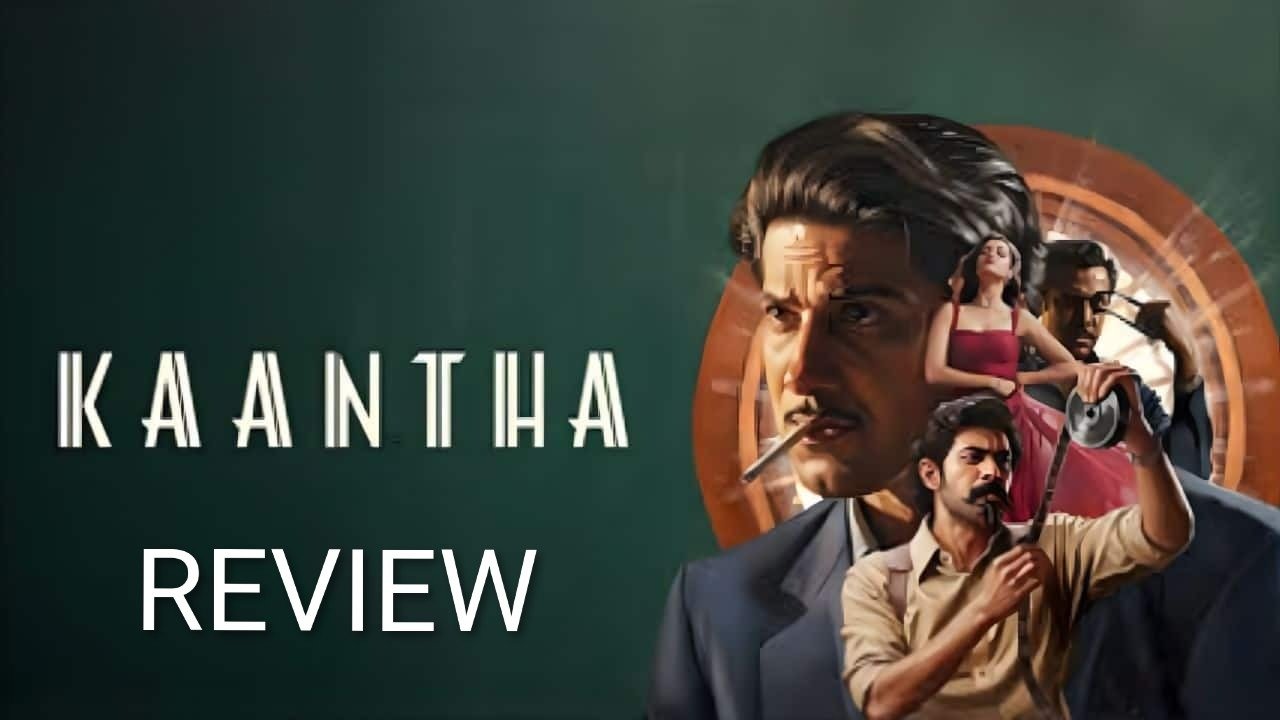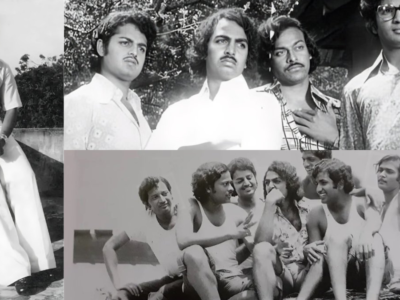Kaantha review: A visually ambitious period drama that has zero conviction
Kaantha review by Kausalya Rachavelpula
A strong premise that loses its way
When you step into a period drama like Kaantha, you expect to be transported into another era. The genre promises a journey filled with nostalgia, cultural richness, and a deep sense of place. The film’s majestic settings, old mahals, and historical backdrop should have created a world that pulls you into the past. You can easily understand why Dulquer Salmaan chose to be part of such a project, as it carries a premise that looks compelling on paper. Unfortunately, as the film unfolds, the execution consistently falls short of the ambition it sets out to achieve.
A period film that struggles to feel authentic
A period film requires a delicate alignment of atmosphere, cinematography, music, dialogues, and performances to make the audience believe in the world being portrayed. In Kaantha, although individual elements show promise, they never come together to create a convincing whole. The lighting choices feel inconsistent, the production design sporadically shines but often lacks depth, and the background score leans strangely modern, frequently clashing with the supposed time setting of the film. Instead of immersing you in a long-gone period, the movie repeatedly reminds you of its own disjointed construction.
Predictability isn’t the issue—Execution is
There is nothing wrong with a predictable story. Many successful films follow familiar arcs but still offer a memorable experience through strong scenes, well-crafted dialogues, engaging interactions, and a steady emotional rhythm. In Kaantha, however, the storytelling feels fragmented. The film seems unsure of its narrative direction, causing scenes to feel detached rather than part of a cohesive emotional journey. This structural weakness prevents you from settling into the story or investing fully in its characters. The movie has zero conviction.
Direction that leaves actors unguided
The inconsistency of performances is one of the clearest indicators of the film’s directorial shortcomings. Experienced actors manage to carry their scenes with ease, but the less experienced cast members often appear uncertain and unpolished. This is not a reflection of their ability but rather a lack of guidance. Bhagyashri Borse, for instance, displays remarkable potential, especially through her expressive eyes and facial emotions. Yet without proper direction regarding camera awareness, subtlety in body movements, or scene intensity, her performance doesn’t reach the depth it could have. The responsibility for this gap falls squarely on the director.
Dulquer Salmaan, meanwhile, seems to navigate the film with an internal compass. His command of the camera and understanding of performance craft stand out clearly. It feels as though he directs himself, not by overstepping but simply because he knows exactly how to inhabit his character. His conviction is evident even when the screenplay gives him little support.
Kumari (Bhagyashri Borse): A powerful character reduced to an after thought
Viewing the story through Kumari’s perspective reveals just how much potential the narrative neglects. She is written as a character with emotional richness and a meaningful past, someone who strives to remain happy and grateful despite her experiences. Such a character could naturally serve as the emotional anchor of the story, the one who stabilises the conflicts between Ayya and TKM. Yet the film barely explores this dimension. Her strength and narrative purpose emerge only toward the final segments of the movie, making her feel like a late addition rather than a central force. This underutilisation weakens the emotional structure of the entire film.
A technically capable film that lacks heart
There are moments where Kaantha briefly shines through isolated shots or frames, but these glimpses are overshadowed by uneven pacing, awkward blocking, and a general lack of conviction in storytelling. You sense that the film had all the resources it needed but lacked the vision to bring them together meaningfully.
Kaantha review: Verdict
Kaantha had every possibility of becoming a standout period drama. With stronger directorial guidance, a more grounded narrative structure, and deeper attention to character arcs, the film could have delivered a powerful cinematic experience. Instead, it becomes a missed opportunity, redeemed only in part by Dulquer Salmaan’s committed performance. Apart from a few memorable scenes, Kaantha ultimately fades from memory, leaving you wishing for the version of the film it could have been.
P.S.: Even in period films, it’s time filmmakers stop romanticising extramarital affairs. Because even in those days, women chose dignity, walked away from betrayal and took divorces. History is full of strong choices — there’s no need to glorify the wrong ones.
Fridaywall Rating: 1.5/5 (For Dulquer Salmaan’s acting prowess)
















